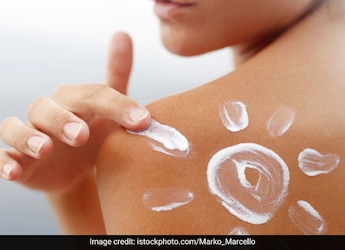As pollution continues to destroy our ozone layer, being in the sun becomes more and more dangerous. In this article, we discuss how.

Prolonged sun exposure can cause tanning
Sun has a great impact on our life on earth and our universe. Besides being an integral part of our universe, the sun also benefits us as humans. Sunbathing is considered very beneficial for the body for decades now.
However, as the pollution and degradation of our planet have increased, it has caused irreversible damage to the dynamics of our planet and the sun. Global warming, and decrease of the ozone layer are a few reasons that make sun exposure rather dangerous for our bodies. The UV (ultra-violent) rays emitted by the sun can adversely affect us.
How does skin exposure negatively affect us?
Wrinkles
Prolonged exposure to the dangerous UV rays of the sun can cause wrinkles on your skin. Wrinkles are essentially caused when the skin's connective tissues such as collagen, elastin, etc. are depleting underneath the skin. Though skin-ageing is a natural process and is inevitable as skin loses its natural proteins. Long duration of sun exposure can cause these connective tissues to die and hence speed up the skin-ageing process.
Tanning
Tanning is the darkening of the skin. It appears on areas that have been in direct contact with UV rays. It is the less harmful effect of sun exposure on the skin. Tanning is the natural process of your skin to protect it from the sun's UV rays. Melanin is the dark pigment that multiplies over your skin as a way to shield your skin from the ultra-violent rays.
Sunburn
Sunburn is the redness or/and swelling caused on the skin. It is an effect of excessive exposure to the sun. It might happen if you don't limit your exposure to the sun and do not apply sunscreens/ sunblocks properly. Although tanning is the process through which the body avoids sunburn, it might not be 100% effective.
Dehydration
Dehydration is an effect of the body requiring more water in the system that it is being provided. Dehydration might cause excessive thirst, dizziness, fatigue, dry mouth, and other symptoms. Make sure to consume at least 3 litres of water daily especially if you are often exposed to the sun.
Damages eyes
UV rays have the potential to harm the tissues in our eyes. They also have the ability to burn the cornea, which is the outermost layer of our eyes. UV rays can also cause our eyesight to appear cloudy. This might make the eyes prone to developing Cataracts if the contact with the sun is prolonged. If left untreated, this can even result in blindness.
Skin cancer
Skin cancer is one of the more widely known chronic diseases that UV rays can cause. Long duration of exposure to UV rays can alter the DNA of one's skin. This change in DNA along with the speedy multiplication of these now abnormal skin cells can cause skin cancer.
How to make sun exposure safe?
Sunscreen
Regularly applying and reapplying sunscreen during the day can help you protect your skin from the damaging effects of UV rays. Sunscreens convert the UV rays into heat which is later cooled off and hence protects the skin from getting damaged.
Sunblock
Sunblock is another alternative to sunscreen. Sunblock works as a physical barrier and shields the skin from the dangerous UV rays. Sunblock is a great protectant in case you are going to be exposed for longer durations.
Shorten the span of exposure
Limit your exposure to the sun to avoid the negative effects. Even after applying sunscreen and taking other measures, prolonged exposure to the sun can worsen the skin and other parts of the body.
Hydrate
Long periods of exposure to the sun can cause dehydration. Besides that, drinking enough water helps your body recover from tans and other skin issues that the sun may cause.
Physical barriers
Oftentimes, sunscreen or sunblock might not be enough. Try wearing clothes that colour your skin and are lighter in colour so they attract less heat.
Finally, in today's time, the best prevention of the sun is to avoid it completely. Avoid the sun preferably from 10 am to 4 pm. In case sun exposure is unavoidable, take all the necessary protective measures listed above. In addition to this, if you do notice any abnormalities in your body as discussed here previously, see a doctor immediately.
Disclaimer: This content including advice provides generic information only. It is in no way a substitute for a qualified medical opinion. Always consult a specialist or your own doctor for more information. NDTV does not claim responsibility for this information.
DoctorNDTV is the one stop site for all your health needs providing the most credible health information, health news and tips with expert advice on healthy living, diet plans, informative videos etc. You can get the most relevant and accurate info you need about health problems like diabetes, cancer, pregnancy, HIV and AIDS, weight loss and many other lifestyle diseases. We have a panel of over 350 experts who help us develop content by giving their valuable inputs and bringing to us the latest in the world of healthcare.














